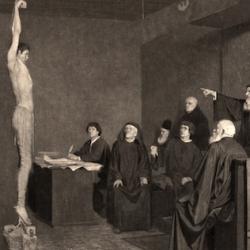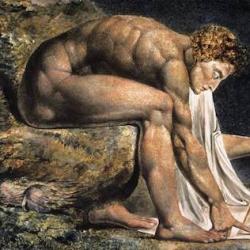Michio Kaku’s Physics of the Future: How Science Will Shape Human Destiny and Our Daily Lives by the Year 2100 is a breathless book. In the next hundred years, we’ll approach godlikeness and transcend human limits: “we will be able to manipulate objects with the power of our minds. Computers, silently reading our thoughts, will be able to carry out our wishes. We will be able to move objects by thought alone, a telekinetic power usually reserved only for the gods. With the power of biotechnology, we will create perfect bodies and extend our life spans. We will also be able to create life-forms that have never walked the surface of the earth. With the power of nanotechnology, we will be able to take an object and turn it into something else, to create something seemingly almost out of nothing . . . . With our engines, we will be able to harness the limitless energy of the stars” (p. 12).
The thing that will keep us back is not technological but personal; we prefer to have personal connections even when we can accomplish the same thing more efficiently with technology. Faced with a choice, we prefer “High Touch” to “High Tech,” a real live professor to talk to rather than a computer screen (17).
Breathless, but then Kaku points out that there have been breathless predictions before:
In the 1990s, the great-grandson of Jules Verne came across an published novel, Paris in the Twentieth Century , written in 1863. In it, “Verne predicted that Paris in 1960 would have class skyscrapers, air conditioning, TV, elevators, high-speed trains, gasoline-powered automobiles, fax machines, and even something resembling the Internet. With uncanny accuracy, Verne depicted life in modern Paris.”
He did the same thing in his 1865 From the Earth to the Moon : Verne “predicted the details of the mission that sent our astronauts to the moon more than 100 years later in 1969. He accurately predicted the size of the space capsule to within a few percent, the location of the launch site in Florida not far from Cape Canaveral, the number of astronauts on the mission, the length of time the voyage would last, the weightlessness that the astronauts would experience, and the final splashdown in the ocean” (5).
I’m sure bloggers said Verne was breathless too . . . .















